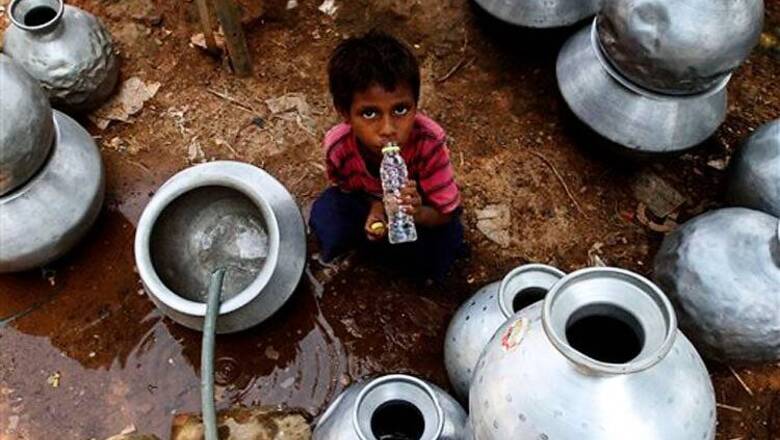
views
New Delhi: Any immediate respite from heat is unlikely for a few more days as the monsoon which was expected to hit Kerala on May 30, is delayed. The MET department has said that the monsoon is now expected to hit the Kerala coast by the June 4, three days after its normal onset date.
The Southwest Monsoon had advanced over the Bay of Bengal by May 21. However, its progress has been sluggish because of anti-cyclone in the Arabian Sea.
According to DS Pai, lead monsoon forecaster of the Indian Meteorological Department, conditions are still not favourable for the progress of the monsoon and there will be a delay.
The IMD, in its preliminary forecast, had said that the Southwest Monsoon rains will hit the Kerala coast on May 30. By May 21, the southwest monsoon advanced over the Bay of Bengal touching southern parts of Sri Lanka. But here on, the monsoon stagnated for a week. The progress has been sluggish because of anticyclone in the Arabian Sea.
"Because of this, it is also not getting strength. We are expecting the monsoon to hit the coast by June 4," Pai said. Southwest Monsoon is known for its truant nature and it generally defies predictions. This year, the Monsoon current lost strength after reaching Hambantota in Sri Lanka. The Northern Limit of Monsoon (NLM) remained stagnant there for over a week.
"As of now, Kerala is receiving only patchy rains. We can expect Monsoon to set in over Kerala only after June 3," said Skymet, a private forecasting agency.
The timely onset of the south-west monsoon is crucial for sowing of kharif (summer) crops such as paddy and a deficit in rainfall may hit output. Agriculture is heavily dependent on the monsoon as only 40 per cent of the cultivable area is under irrigation. Last year, the country had received 12 per cent less rains, which hit production of grains, cotton and oilseeds.
Agriculture growth stood at 0.2 per cent in 2014-15 fiscal. According to the government's estimate, total food grains production has declined to 251.12 million tonnes in 2014-15 crop year (July-June) from a record production of 265.04 million tonnes in 2014.




















Comments
0 comment